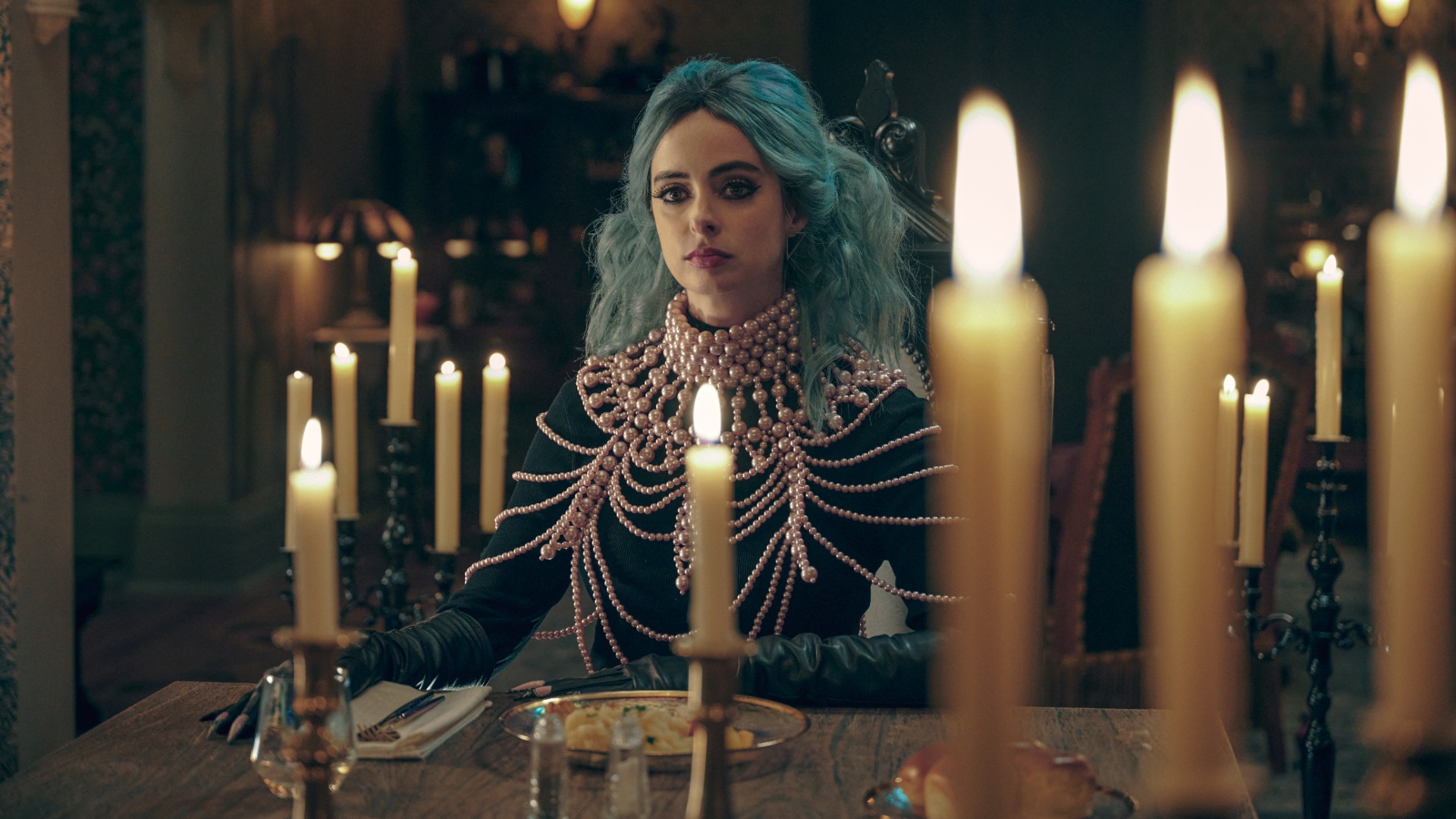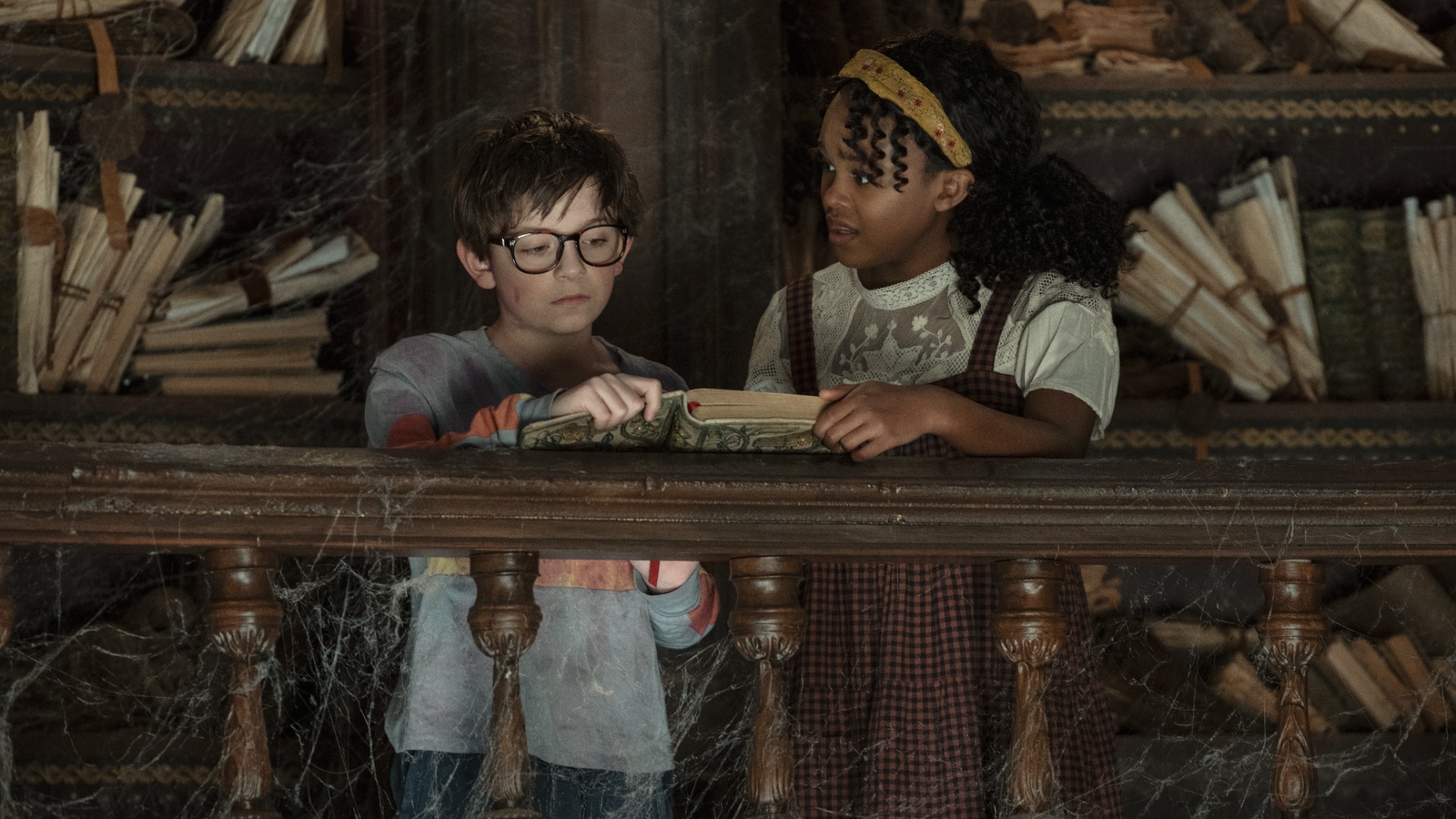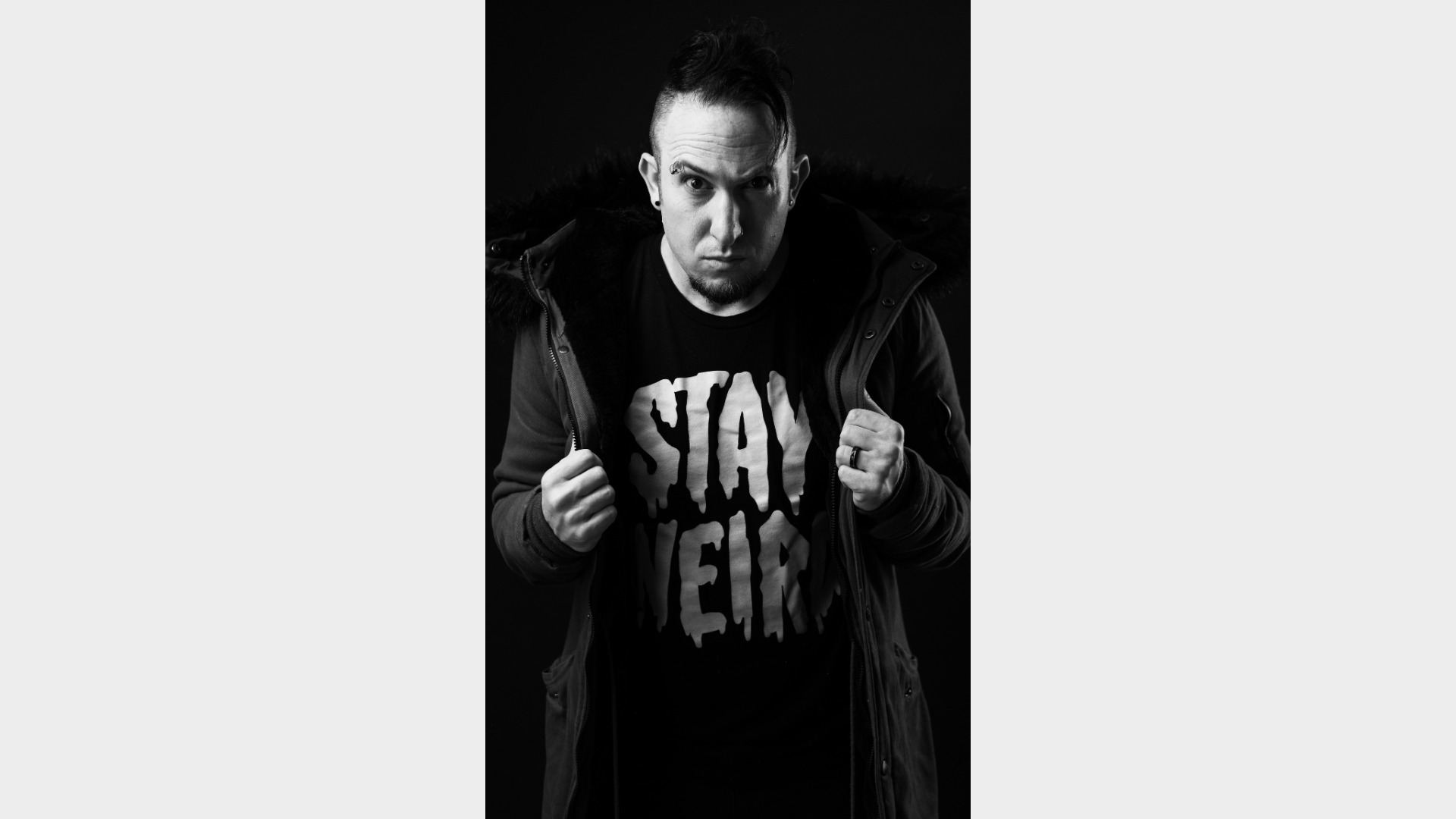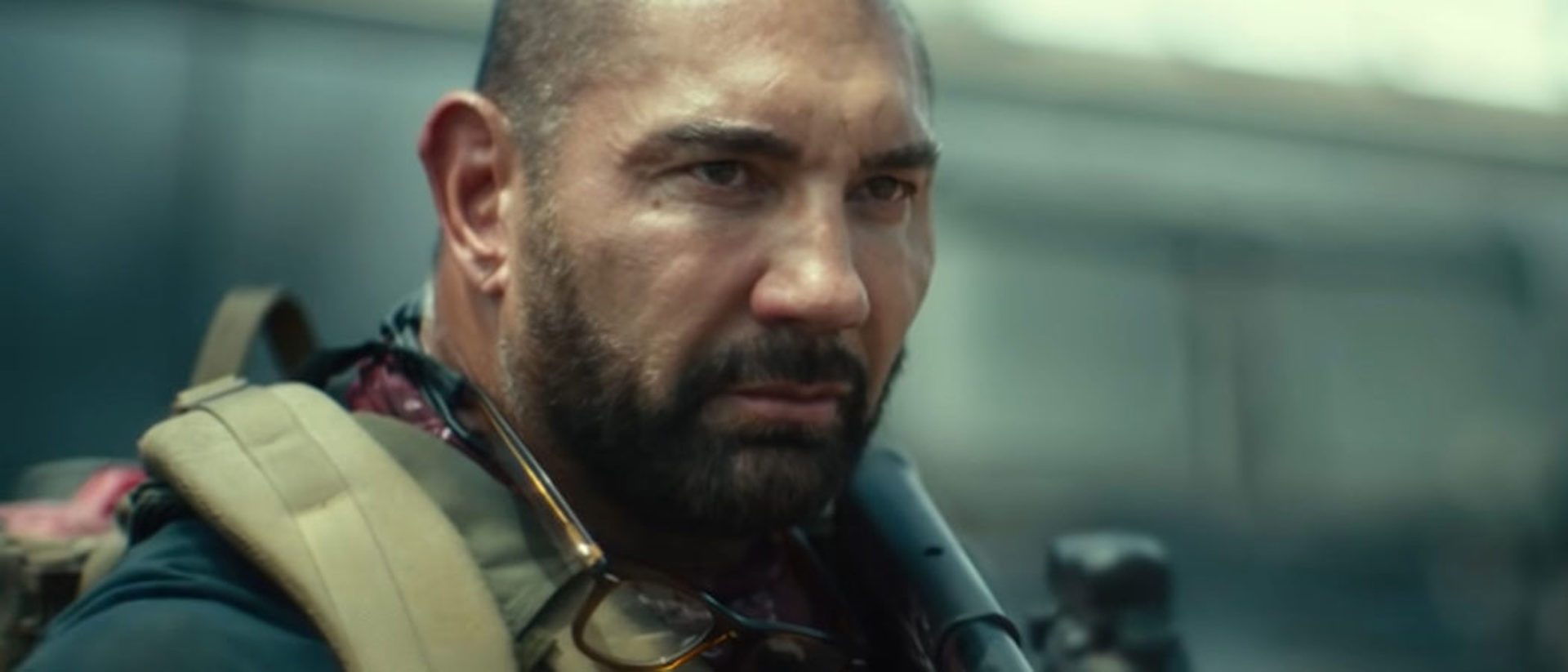Nightbooks director talks Netflix’s new horror, working with Sam Raimi, and potential sequel
GamesRadar+ speaks to David Yarovesky about his new Netflix movie, Nightbooks

How do you make a horror movie for kids that doesn't talk down to them? That's a question director David Yarovesky – best known for the R-rated Brightburn – aims to answer with Nightbooks, the filmmaker’s new Netflix movie that’s produced by horror maestro and Spider-Man extraordinaire Sam Raimi.
Based on the children's novel of the same name by J.A. White, Nightbooks follows Alex (Winslow Fegley), a young boy with a penchant for telling horror stories. After a bad day at school, Alex finds himself trapped inside an apartment belonging to the eccentric and malevolent witch, Natasha, played by Jessica Jones actor Krysten Ritter. She decides to keep Alex alive, but only as long as he tells her a sufficiently scary story every day. How long can he keep it up for? Together with fellow captive Yasmin (Lidya Jewett), Alex attempts to escape the witch's apartment so the duo can return to their families.
Both Yarovesky’s movies follow young outcasts, with Brightburn centering on a young alien boy who rejects his humanity and turns to evil upon discovering that he has superpowers. We spoke to Yarovesky about the comparison, as well as diving into the making of Nightbooks and whether a sequel could be around the corner. Here’s our full Q&A with the director, edited for length and clarity.
GamesRadar+: Sam Raimi was a producer on Nightbooks – what was it like working with him? And which elements of his work behind the camera were you most excited to bring into the movie?
David Yarovesky: Sam was a literal god to me growing up. There were two directors that I especially fixated on, it was him and Peter Jackson, and they were both directors who, at some point, had made really crazy horror movies that were not mainstream, that were out of the box and weird, and then both of them went on to make massive, huge studio movies and become massive directors. At the time, I really can't think of any horror directors that were really doing that, not coming from that corner of horror at least, and it was really just inspiring to see.
So working with him was a dream. There's a saying to never meet your idols, but the person who invented that saying, their idol wasn't Sam Raimi, because meeting him was everything I would want it to be and working with him was incredible. He was a creative ally on the project and someone I could go to and discuss things. There were times when he would say, 'Oh, what about if we do it like this?' Or, 'What if you try this,' and I'd be like, 'Oh my god, that is the most Sam Raimi idea I've ever heard.' It was smart, but it was also, the second he was saying it, I could watch the scene as if he directed it. I was like, 'Oh, I see how he thinks, I get why his movies are the way they are.' He's so good at what he does. And so it was a dream come true for me to work with Sam and, knock on desk, I hope I get to do it again.

Nightbooks is a family movie, but it's still spooky. I know if I'd watched it when I was a kid, I'd have been freaked out. How did you strike the balance between keeping the movie family-friendly while also ensuring that things were still sufficiently gruesome?
Sign up for the Total Film Newsletter
Bringing all the latest movie news, features, and reviews to your inbox
DY: This movie is different than other family horror movies. If you think about all modern comparisons, they're often, at its core, an adventure comedy or something. They're not really horror, they just have the look of horror, but they're striving more for jokes than tension and anticipation. And one of the things that we first started talking about when I was talking about doing the movie, I just felt like people overlook the reality of horror. They think what's scary about horror, what defines the genre of horror, the storytelling tradition of horror, is gruesome things or horrific imagery that kids can't be exposed to. But it's not the case.
A thing that I said on Brightburn a ton, the scariest part of every movie is someone walking through an empty house, saying, 'Hello?'. Because you're sitting there going, 'What's in the house, what's in the house,' and you're waiting for where it's gonna come from. And that's all fair game – there's nothing about that that kids can't enjoy, like, the anticipation of where a scare's gonna come from, but you just have to make sure that, when the scare happens, it's just not something that's inappropriate for kids.
And so one of the fun things about this movie is it doesn't pull its punches, it doesn't talk down to kids, it doesn't do any of those things. It really looks and feels and sounds, for all intents and purposes, like a real horror movie, it's just not too scary for families to watch together. So this was an attempt to make a negotiation, to really try something new on that front, and I'm proud of what we did, because it feels different. There really isn't a movie like it, or at least hasn't been in a very long time. And I'm just thankful to the producers, to Netflix, for letting us try it and see if we were crazy or not.
There are a few references in the film to The Lost Boys – was that a source of inspiration? Or were there any other horror movies that you wanted to pay homage to?
DY: I love Lost Boys. Krysten [Ritter] loves Lost Boys, it was one of the things we first bonded on when we were talking about the movie. But Lost Boys was not just a beloved movie from my childhood, it ticked a number of boxes, which made it a good choice for [main character] Alex's favorite movie – it was not too hardcore of a horror movie. We had a lot of conversation about what that movie could be, because in the book it's Night of the Living Dead, and I wanted to base Alex's stories off of his favorite movies, and I wanted the stories that he tells to be inspired by the things that he loves. And so, what I was looking for was not just a movie that I love from my childhood that could be a classic for Alex, but a movie that also could help be inspiration for the visual style in Alex's storytelling. I found that in Lost Boys because of the use of red, and how that last sequence is bathed in red. And it was a simple way to use the visual language to say that these two are connected – that Alex is inspired by previous creative weirdos, to go on to make his own creative weird stuff.
The main character in Brightburn is also a kid, and obviously, in Nightbooks, there are two kids as the main characters. What do you think a story gains from being centered around children rather than adults?
DY: You know, I've asked myself this, because I get sent scripts, I read a ton of scripts. Why was I compelled to movies, back-to-back, to center around a young boy who's a weirdo or an outcast? Perhaps that's how I see myself, not as a young boy, but just as a weirdo or an outcast, and that's the story I feel like I can tell most authentically. Certainly, the message of this movie is a love letter to the young generation today, to encourage them to keep being weird, and to not let the world stomp that magic out of them. And so I guess it's that. And then, on top of that, there's a piece of it that's just coincidence, that they're two stories that really spoke to me, and they're just two of the best scripts that I had read in the breadth of time that I was doing it.

Everyone's expectation is Tim Burton... I came to this movie to say, 'What if we don't do that?'
David Yarovesky on Nightbooks
I thought Natasha's outfits, and also her apartment, were amazing – I liked the maximalism and opulence of it all. So how did you approach the production and costume design for the movie? Did you go into it with a vision? What was the process?
DY: My wife [Autumn Steed] was a costume designer on this and Brightburn. We've worked together as long as we've been together, and we've been together for a long time. And it's become part of my creative process that she and I just bounce ideas off each other and challenge each other. 'Do better, be more creative, think deeper about things.'
And one of the interesting challenges of making this movie – besides the obvious ones, the COVID of it all, and besides all the regular challenges that come with making a movie – you step into the dark fantasy or fantasy horror genre, and suddenly everyone's expectation is Tim Burton. And by the way, I love Tim Burton movies, I grew up on Tim Burton movies, but this genre has a look, and it's Tim Burton's look, and it has a sound and it's Danny Elfman's sound. And one of the things that I came to this movie to do was to say, 'What if we don't do that? What if we make a different kind of world?' And certainly, there's been other directors who have done that, Guillermo [del Toro] is incredible at that, and there's plenty of others, but for the most part, everyone's default setting is everything's gonna be monochromatic, there's gonna be stripes, everything's gonna be crooked and twisted, and that's where people's brains go.
So there was that, and then it was also just the struggle of taking really fantastical concepts that are magical, and totally not things that could happen in real life, and trying to make them feel as real as possible for the viewer. Because the movies I grew up on and loved made me feel like what I was seeing was real. When I saw Jurassic Park, I was like, 'Those dinosaurs are real,' and they did everything they could to really make you feel like you're looking at dinosaurs. And I think that was our goal, was to try to take these ideas that were way fantastical and try to ground them in reality and build an internal logic, visually, and using storytelling and visuals and sound and just make it feel good.

There are the best Netflix movies to watch right now
The ending of the movie definitely suggests that we haven't seen the last of these characters. What would you like to explore in a sequel if that were to happen?
DY: Well, wouldn't we be lucky? That would be a wonderful thing, if people liked this movie enough that they want to see a sequel, and if Netflix likes the movie enough that they want to see a sequel, that'd be a great thing. I would obviously love to make a sequel. It's a world that I've constructed with tons of love and care and design and, obviously, working with Winslow [Fegley] and Lidya [Jewett] and Krysten was incredible. So I would just love to come back to this universe.
In terms of what I'd like to explore creatively, I certainly wouldn't get into that. But I would say that the author J.A. White did an incredible job with the first book, and I would certainly lean on him to be a creative partner. I totally want to respect what he sees for the future, as well as all the other factors that are going to come into it. But yeah, I have a lot of ideas, a lot of things that I would do in this universe, so we'll just have to watch and see and hope people enjoy the movie and go from there.
James Gunn was a producer on Brightburn – do you have any plans to work with him again?
DY: I don't have any direct plans to work with him other than, like, I would love to work with him again. He's really busy, you know, he's making Marvel movies, DC movies, and he's just, like, he's everywhere, and they're all very big movies. He's a guy who, when he makes something, he's all in. It's not a casual job, it's an all-consuming, life-swallowing job.
James is a mentor to me, but he's also an incredibly close friend. He officiated my wedding, so he's close with me and my wife, and so anytime you can work with people that are close to you like that, it's a blessing. It's a dream come true. Because what a dream, to go to work, to get to make these movies and imagine this stuff and do it with your friends. I mean, what could be better in life? So yeah, I hope to make more movies with James, I truly hope to make more movies with Sam and with Netflix, and I made a lot of friends on this movie as well. So, knock on wood, I'll get to make more.
Nightbooks is on Netflix now. Looking for more on the streamer? Then check out the best Netflix horror movies available right now.
I’m an Entertainment Writer here at GamesRadar+, covering everything film and TV-related across the Total Film and SFX sections. I help bring you all the latest news and also the occasional feature too. I’ve previously written for publications like HuffPost and i-D after getting my NCTJ Diploma in Multimedia Journalism.


